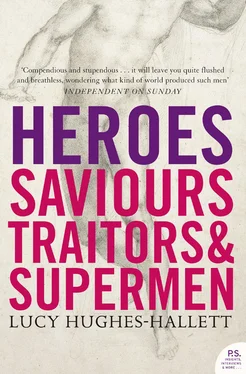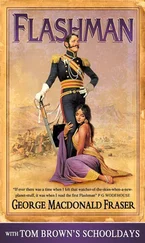This place of darkness and suppression, however, was widely admired even by its enemies. Socrates joked about the fashionable Athenian Spartophiles who wore short tunics and leather bands around their legs and mutilated their ears in the Spartan style. Spartans were praised for their frugality and their physical fitness, for the fortitude with which they bore pain, for their indifference to all forms of pleasure and their readiness to sacrifice themselves for the common good. To many Athenians they seemed, not enviable of course, but admirable: models of ascetic virtue, time travellers from a simpler but more dignified age. The austerity of their lifestyle made an aesthetic appeal even to those who would not themselves have wished to drink black broth. The authoritarianism of their rulers was insidiously seductive to those weary of the endless argument and counter-argument of the democratic process. Pindar wrote in praise of Sparta, its venerable council of elders, its young men’s conquering spears. And Plato, while overtly rejecting the Spartan system of government as being debased, incorporated many Spartan institutions and Spartan values into his ideal Republic, thus ensuring that Lycurgus’ programme for converting an individual into a useful component of the state has become intrinsic to Western ideals of manliness, of good citizenship, and of heroic virtue.
In Sparta Alcibiades was to describe Athenian democracy as ‘ a system which isgenerally recognized as absurd’; and although he was undoubtedly attempting to curry favour with his anti-Athenian audience, it is also possible that he spoke from the heart. He had proved a brilliant manipulator of the democratic Athenian Assembly, with powers of persuasion equal to those of the demagogues he despised; but once the Assembly had turned against him he would have had strong personal reasons to reject, not only that particular gathering, but the political system of which it was the foremost example. As an aristocrat he may have found the oligarchic Spartan system congenial. As a young and famously beautiful military commander he must have responded to the Spartan cult of the warrior: ‘ In time of warthey relaxed the severity of the young men’s discipline and permitted them to beautify their hair and ornament their arms and clothing, rejoicing to see them, like horses, prance and neigh for the contest.’ He had felt in Athens what it was like to be at the mercy of people he considered his inferiors. He had been condemned by his own city for reasons that probably seemed to him pettifogging and stupid. Sparta may have seemed to him a home more fit for heroes.
Certainly it suited him to give his hosts that impression. He arrived in Sparta a penniless fugitive whose life depended on his winning the protection of his former enemies. Never again would he dazzle and intimidate in his youthful role of spoilt, swaggering dandy. In Athens, he had made a mock of public opinion. In Sparta, he was tactful, accommodating, charming. In Athens, he glittered like Achilles: in Sparta he showed that he could bend and change like Odysseus, Homer’s ‘man of twists and turns’. Achilles is absolutely self-consistent, totally transparent. He says he hates the man ‘ who says one thingbut hides another in his heart’ as he hates the Gates of Death. Odysseus says the same thing in almost identical words, but he says it in the course of a speech we know to be a concatenation of lies. He is a diplomat and intriguer, a master of disguise and dissimulation. Alcibiades was like him. He was a chameleon, a brilliant role-player. He possessed, says Plutarch, ‘ one special giftwhich surpassed all the rest and served to attach men to him, namely that he could assimilate and adapt himself to the pursuits and the manner of living of others’.
He was an outcast now, and those deprived of their rooted identity are freed to reinvent themselves. The second-century theologian Justin Martyr described the lineage of Cain, those outsiders of Hebrew legend, as shape-shifters who could become at will birds, serpents, or quadrupeds. Alcibiades, an accursed exile like Cain, had the same protean gift, mark both of his untrustworthiness and his uncanny brilliance. In Athens his lifestyle had been luxurious to the point of decadence. Sailing to Sicily, he astonished his peers by having part of the deck of his trireme cut away so that he could sling up a hammock instead of sleeping, as all his compatriots, however exalted, did, wrapped in his cloak on the wooden deck. Now he became an ascetic. ‘By adopting Spartan customs in his everyday life he captivated the people and brought them under his spell.’ He grew his hair long in the Spartan fashion, took cold baths and ate coarse bread with the notorious black broth. (Ironically, this play-acting won him the accolade of being compared with the hero who was never anything but himself: ‘In Sparta, so far as all the externals went, one could say of him “This is no son of Achilles, but Achilles himself”.’) A marked man, he could no longer afford the self-indulgence of spontaneity. For the rest of his life, for all the glory and acclaim that still lay before him, he would have to please his audience, to mind his manners and watch his back.
He had to present himself to his new masters as something more than a renegade with an exhaustible fund of useful information. He could probably, had he been content to live a modest and private life, have bought himself sanctuary at the price of a few minor betrayals, but the restless, self-castigating ambition that Socrates had identified in him made such a solution to his problems inconceivable. When he arrived in Sparta in the winter of 415–414 BC he had yet to score any notable military successes. Deprived as he was of his social position, without his wealth, without an army, the only way he could win a role consonant with the ‘love of distinction and desire for fame’ that drove him all his life was to project an image of himself as a superman capable of accomplishing mighty deeds unaided. In Sparta he began the creation of that image.
He had a quick eye for the main chance. Odysseus is ‘never at a loss’ and Thomas Carlyle was to define a hero as ‘a man with an almost mythical awareness of what needed to be done’. Alcibiades was one such. The philosopher Theophrastus, who lived a century after him, thought that he ‘ possessed in a higher degreethan any of his contemporaries the faculty of discerning and grasping what was required in a given situation’. Delegations arrived in Sparta from Sicily asking for help against the Athenians. Alcibiades seized his opportunity. He spoke in the Sicilians’ support, using the occasion to make his formal entry into Spartan public life. His speech, as reported by Thucydides, is a brilliant exercise in self-justification and self-aggrandisement. In it he publicly declares, for the first time, a tremendous programme of conquest and colonization of which the Sicilian expedition was to have been only the beginning. From Sicily, he told the Spartans, he would have led the Athenians on to Italy and, that territory once conquered, would have launched an attack on Carthage and its empire. Then, with all the might of their new western conquests to draw on, the Athenians would have returned to crush the Peloponnesians, to emerge finally as masters of the entire Mediterranean world.
Probably Alcibiades had entertained such intentions: they are entirely consonant with his well-attested ambition. But it is unlikely that such a grand design ever existed outside of his imagination, and inconceivable that Nicias would have consented to it. When Alcibiades told the Spartan Assembly that ‘ The generals whoare left will, if they can, continue just the same to carry out these plans’ he was certainly lying. But the lie went undetected. The Spartans were persuaded. They decided to intervene in Sicily. And from then onwards, in their eyes and in posterity’s, the audacity and grandeur of those tremendous projected conquests attached themselves to Alcibiades, lending him the aura of a great man; one who, had he not been thwarted by his ungrateful compatriots, might have become, five years before Alexander of Macedon was born, a world-conquering Greek. The modern historian Donald Kagan pays tribute to his performance on this occasion: ‘ One can onlymarvel at his boldness, his imagination, his shrewd psychological understanding, and the size of his bluff.’
Читать дальше












